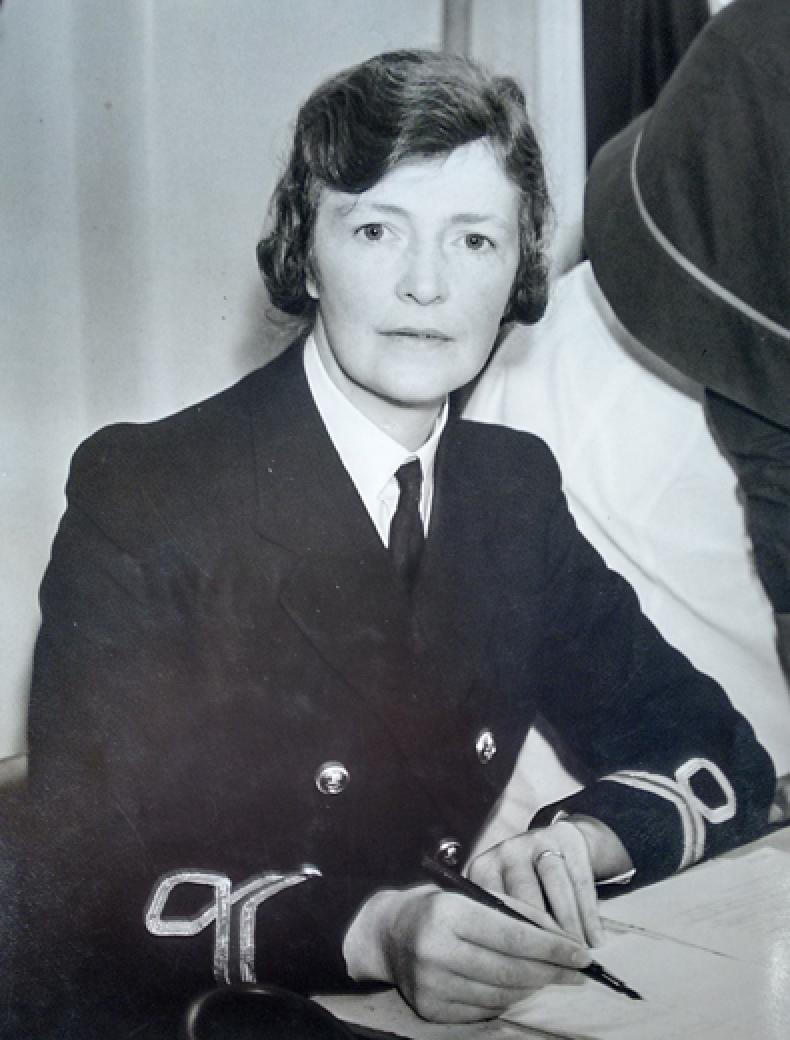Surgeon Lieutenant-Commander
 Attracta Candon was born in Roscommon, Ireland in 1897. Her father was a publican and farmer and moderately well off as the family employed two servants. Attracta, and one of her sisters, went to the National University of Ireland in Dublin to study medicine.
Attracta Candon was born in Roscommon, Ireland in 1897. Her father was a publican and farmer and moderately well off as the family employed two servants. Attracta, and one of her sisters, went to the National University of Ireland in Dublin to study medicine.
Attracta qualified in 1921 and moved to Sheffield where she became an Assistant Schools Medical Officer. It could be that it was here that she met her future husband, Cuthbert Snowball Rewcastle. He was a barrister who stood as the Liberal Party candidate for the Sheffield Hallam constituency in the General Elections of 1922 and 1923. Her parents moved to Sheffield from Ireland at about this time.
Attracta and Cuthbert were married in 1926 and Attracta began work at the Great Ormond Street Hospital in London. She was very active in the Catholic Women’s League and was awarded a Papal gold medal for this service. From 1931 to 1939, in addition to having three children and continuing her work at Great Ormond Street, Attracta continued in private practise in London. In 1939 she was commissioned in the Royal Naval Volunteer Reserve and thus became the first woman doctor to be appointed to the Royal Navy. Her appointment caused some controversy as officers in the Women’s Royal Naval Service (Wrens) were paid less that their male counterparts in the navy. Outside the armed forces, female doctors were paid the same as male doctors, and the Medical Women’s Federation objected to Attracta being paid less that a man in a similar position. As a result, she was promoted to the rank of Surgeon Lieutenant-Commander. As well as blazing a trail for aspiring female officers, Attracta secured the appointment of 20 female Surgeon Lieutenants to the RNVR where previously there had been none. She was awarded an OBE in 1946 in recognition of her wartime service.
After the war Attracta returned to the Great Ormond Street hospital and worked as a maternity and child welfare officer in South London. She was Chairman of the National Board of Catholic Women from 1945 until 1947 and became a Conservative Councillor on Westminster City Council. She stood as a Conservative parliamentary candidate in the 1950 election but was defeated. She was selected to run for the more ‘winnable’ seat of Coventry in the next election but died of oesophageal cancer in 1951.
Two months after she died, her son Anthony – who was in the Royal Navy – died in a tragic submarine accident. Her daughter, Rosalind, became a prominent microbiologist.
Attracta was buried in the Sheffield General Cemetery in February 1951, alongside her parents and her sister.



